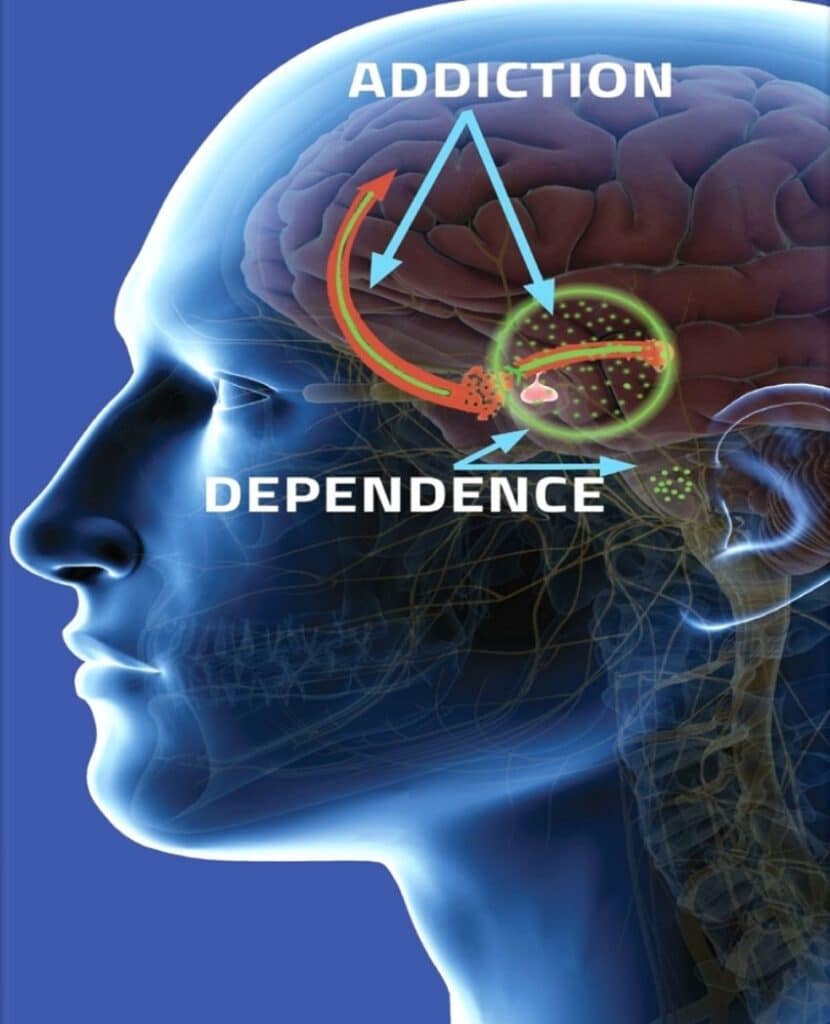Working in addiction recovery, and I understand how overwhelming it can be to have a relationship with someone battling addiction. Addiction changes a person deeply, especially in behavior and communication. Here’s why it often feels like there’s “no relationship” left:
Hijacking of the Brain
Addiction rewires the brain. The substance becomes prioritized over everything else, even loved ones, as the brain sees it as essential for survival. This can lead to behaviors that feel self-centered and hurtful.
Loss of Emotional Connection
Addiction often blunts emotional connection. The person you love might seem distant, emotionally numb, irritable, or prone to unpredictable mood swings, making it feel like you’re interacting with a stranger or even their addiction itself.

Involuntary Lying and Manipulation
It’s painful but common—lying and manipulation are often involuntary in active addiction. These behaviors are usually not personal but driven by the brain’s desperation to maintain access to the substance. This cycle creates recurring hope and disappointment.
Safety and Boundaries
Setting clear, compassionate boundaries is essential for your well-being and safety. Engaging in rational discussions when they’re under the influence is often ineffective. Boundaries can protect you from the emotional ups and downs.
The Importance of Professional Support
Detox and rehab provide the safe, supportive space essential for recovery. Professional care helps break the cycle and rebuilds basic health and stability, free from everyday triggers.
The Road Ahead
Recovery is a journey, often with relapses and setbacks. Long-term plans are essential, as recovery involves building new coping skills and habits for a healthy life.
If you’d like to learn more, I recommend Pleasure Unwoven on YouTube, a video that provides a medical look at how addiction hijacks the brain. It’s not my own work, but it’s an excellent resource that may offer insight. Here’s the link to the video: https://youtu.be/3CGP_fIrFtc?feature=shared
Lastly, remember you’re not alone. Support groups are a crucial resource, providing understanding, empathy, and guidance. If you have questions or would like to explore recovery options, please feel free to reach out. Understanding how addiction actually work on the brain prepares and allows you to respond to challenges. For the Addict and the family we have tons of resources to Make Recovery a Welcome Journey. Feel free to reach out at anytime.

Good web site! I truly love how it is easy on my eyes and the data are well written. I am wondering how I could be notified whenever a new post has been made. I’ve subscribed to your RSS which must do the trick! Have a nice day!
Thank you!! A lot of hard work has gone into the web site to make it easy to read, clear and accessible. I encourage you to use the free subscription, and should be alerted to new posts. I just posted another good one: https://www.precisionp2p.com/astonishing-mortality-rates-the-ripple-effects-of-a-national-epidemic/
Hello there, You have done an incredible job. I抣l certainly digg it and personally recommend to my friends. I am sure they will be benefited from this website.
You made some decent points there. I looked on the internet for the issue and found most people will go along with with your blog.
I have noticed that in video cameras, extraordinary receptors help to concentrate automatically. Those sensors of some digital cameras change in in the area of contrast, while others make use of a beam involving infra-red (IR) light, specially in low lighting. Higher specification cameras occasionally use a mix of both programs and might have Face Priority AF where the digital camera can ‘See’ your face while keeping focused only in that. Thanks for sharing your notions on this site.
I have been exploring for a bit for any high quality articles or weblog posts on this sort of house . Exploring in Yahoo I at last stumbled upon this site. Reading this info So i am glad to convey that I’ve a very just right uncanny feeling I came upon exactly what I needed. I so much for sure will make certain to do not overlook this website and provides it a look on a constant basis.
We would also like to state that most individuals that find themselves with out health insurance are typically students, self-employed and those that are without a job. More than half of those uninsured are under the age of Thirty-five. They do not come to feel they are in need of health insurance as they are young plus healthy. Their income is usually spent on housing, food, along with entertainment. Many people that do go to work either full or part time are not given insurance by their work so they go without as a result of rising expense of health insurance in the usa. Thanks for the thoughts you share through this site.
There are certainly a lot of details like that to take into consideration. That is a nice level to convey up. I provide the ideas above as basic inspiration but clearly there are questions like the one you convey up the place the most important factor will be working in trustworthy good faith. I don?t know if best practices have emerged around things like that, however I am sure that your job is clearly identified as a fair game. Each girls and boys feel the affect of only a second抯 pleasure, for the remainder of their lives.